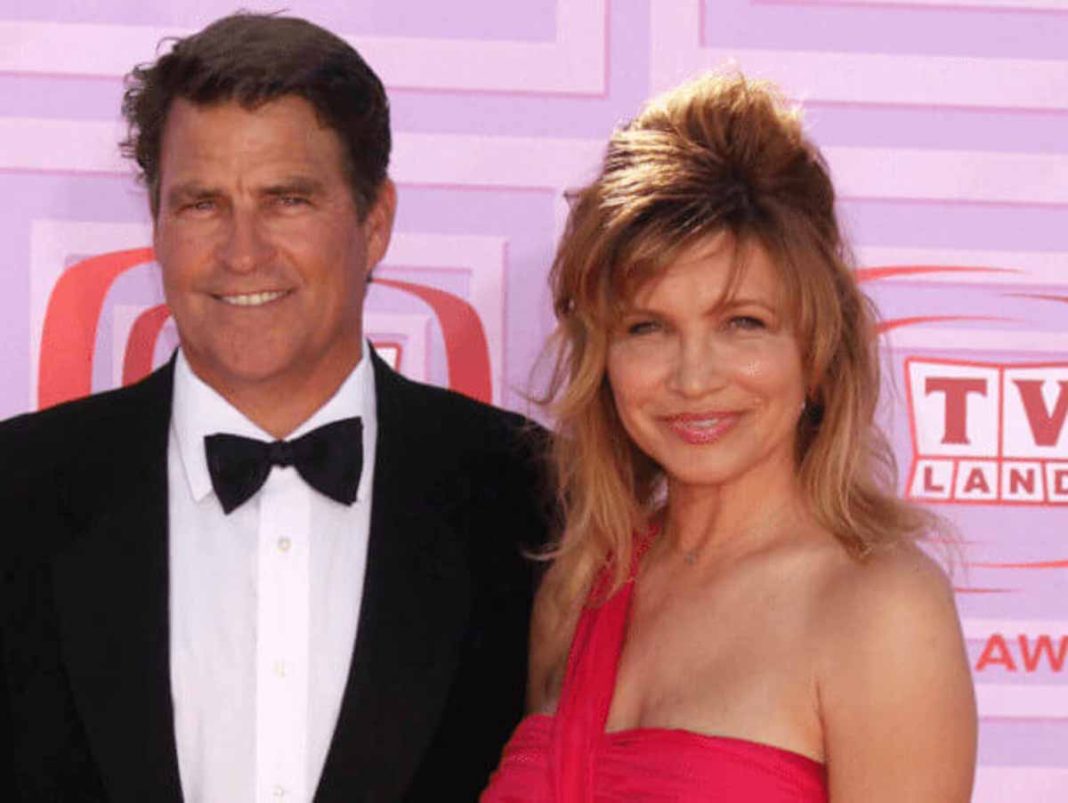Beau McGinley: Decoding The Enduring Charm Of 'Beau'
In the vast tapestry of the English language, certain words possess a unique charm, carrying layers of meaning and historical resonance. One such word is "beau," a term that, despite its seemingly simple appearance, unveils a rich semantic landscape. While our primary keyword, Beau McGinley, might lead one to expect a biographical exploration of an individual, the provided linguistic data directs us toward a fascinating journey into the very essence of the word "beau" itself. This article will meticulously unravel the multifaceted definitions, historical contexts, and contemporary applications of "beau," offering a comprehensive understanding that transcends its common usage.
From its origins in French to its varied roles in English, "beau" has served as a descriptor for elegance, a term of endearment, and even a label for a specific social archetype. By delving into its etymology, exploring its synonyms, and examining its usage in diverse scenarios, we aim to provide a detailed and authoritative guide to this intriguing word. Understanding "beau" is not merely an academic exercise; it enriches our vocabulary, sharpens our comprehension of literary and historical texts, and allows for more precise and nuanced communication in our daily lives.
Table of Contents
- The Etymological Roots of 'Beau'
- 'Beau' as a Romantic Designation: Lover and Sweetheart
- The Dandy and the Fashionable 'Beau'
- 'Beau' in Affectionate and Polite Address
- Understanding 'Beau' in Context: Nuances and Usage
- The Name 'Beau' and Its Enduring Appeal
- The Cultural Significance and Legacy of 'Beau'
- Mastering the Art of Using 'Beau' Correctly
The Etymological Roots of 'Beau'
The journey of the word "beau" begins in the heart of the French language, where it serves as a foundational adjective meaning "handsome," "fine," "attractive," or "nice." This French origin is crucial to understanding its subsequent evolution and diverse applications in English. The provided data explicitly states: "Beau (masculine singular before vowel bel, feminine belle, masculine plural beaux, feminine plural belles) handsome, fine, attractive nice fair (weather) il fait beau." This highlights its grammatical versatility in French, adapting its form based on gender and number, a characteristic largely lost in its English adoption as a noun.
The concept of "fair weather" (il fait beau) further illustrates its original breadth, encompassing not just physical attractiveness but also a general sense of pleasantness or desirability. This intrinsic connection to beauty, goodness, and pleasantness forms the semantic core from which all other meanings branch out. When "beau" first entered the English lexicon, it carried this inherent connotation of something pleasing to the senses, whether visually, emotionally, or even meteorologically.
From Old French to Modern English Usage
The transition of "beau" from Old French into English was part of a broader linguistic exchange following the Norman Conquest. Over centuries, English absorbed countless French words, enriching its vocabulary and adding layers of sophistication. "Beau" initially retained much of its original French meaning, often appearing in literary and aristocratic contexts to describe a man of refined appearance or a pleasant situation. However, unlike its French counterpart, "beau" in English primarily evolved into a noun, shedding most of its adjectival functions.
The Oxford Advanced Learner's Dictionary defines "beau" as a noun, emphasizing its established role in English. This shift from adjective to noun is a fascinating linguistic phenomenon, demonstrating how words adapt to the needs and structures of a new language. While the French "beau" continues its vibrant adjectival life, its English descendant has carved out distinct niches, primarily revolving around personal relationships and sartorial elegance. This historical trajectory is vital for appreciating why "beau" carries the specific connotations it does today, distinguishing it from simpler terms like "handsome" or "good."
'Beau' as a Romantic Designation: Lover and Sweetheart
Perhaps the most common and enduring meaning of "beau" in modern English is its use as a term for a romantic partner. The provided data reiterates this multiple times: "A male lover or sweetheart," "A male lover, sweetheart, or escort," "Boyfriend of a girl or woman," "A beau is a term used to refer to a person's boyfriend or male admirer," and "A male companion or friend with whom one has a sexual or romantic relationship." This consistent emphasis underscores its primary role in describing a significant other, particularly from a woman's perspective. The example sentence, "I think my sister has a beau," perfectly encapsulates this everyday usage.
Historically, this usage of "beau" emerged during periods when courtship rituals were more formalized, and terms of endearment carried a certain grace. It evokes an image of a gentleman caller, a suitor, or a steady romantic interest. While "boyfriend" is the more prevalent term today, "beau" retains a slightly old-fashioned, perhaps more romantic or formal, nuance. It suggests a relationship that is acknowledged, perhaps even serious, without necessarily implying cohabitation or marriage. This distinction makes "beau" a valuable word for conveying a specific kind of romantic connection, often with an air of charm and tradition.
The Dandy and the Fashionable 'Beau'
Beyond its romantic connotations, "beau" also carries a strong association with fashion and appearance. The data explicitly defines it as "dandy" and "A man who is greatly concerned with his clothes and appearance." It can also refer to "a fashionable, dashing young man or can be used to denote a male escort for a woman or girl at a." This definition paints a vivid picture of a man who is meticulously dressed, often to the point of being ostentatious, and who takes great pride in his sartorial choices. The "dandy" is a historical archetype, particularly prominent in the 18th and 19th centuries, characterized by his refined manners, sophisticated attire, and often, a certain air of aloofness.
Figures like Beau Brummell in Regency England exemplify this meaning of the word. Brummell, a close friend of the Prince Regent, dictated fashion trends through his impeccable taste and minimalist elegance, moving away from the elaborate costumes of the previous era towards a more tailored and understated style. In this context, a "beau" is not just handsome, but consciously so, investing time and effort into cultivating a polished and impressive appearance. This usage highlights the aesthetic dimension of the word, linking it directly to concepts of style, social status, and the art of self-presentation.
'Beau' in Affectionate and Polite Address
The versatility of "beau" extends beyond romantic partners and fashionistas to encompass terms of affectionate or polite address. The data states: "Used in affection, friendship, or politeness, in addressing relations, friends, etc," and "Equal to the english ‘fair’ (fair sir), ‘good’ (good people), ‘dear’ (dear sir), (usually with their french titles)." This reveals a softer, more intimate side of the word, where it functions as a term of endearment or respect, often with a hint of old-world charm.
In this context, "beau" is akin to "dear" or "sweetheart," used not necessarily in a romantic sense, but to convey warmth and familiarity. It might be used by an older relative to a younger one, or between close friends. The reference to "French titles" suggests its use in more formal or traditional settings, where titles like "Monsieur Beau" (Mr. Handsome/Dear Sir) might have been used, mirroring the English "fair sir" or "good people." This particular usage underscores the inherent positive connotation of "beau," always implying something pleasant, desirable, or worthy of affection, regardless of the specific relationship.
Understanding 'Beau' in Context: Nuances and Usage
To truly grasp the meaning of "beau," one must understand its contextual nuances. The provided data emphasizes the importance of practical application: "How to use beau in a sentence," "See examples of beau used in a sentence," "Meaning, pronunciation, picture, example sentences, grammar, usage notes, synonyms and more," and "Beau synonyms, beau pronunciation, beau translation, english dictionary definition of beau." These points highlight that a word's definition is incomplete without an understanding of its practical deployment in language. Mastering "beau" involves recognizing its specific connotations in different scenarios and avoiding common pitfalls, such as confusing it with homophones.
The directive "Not to be confused with" is particularly important. While the data doesn't specify what "beau" might be confused with, common culprits include "bow" (as in a knot or to bend) or "bo" (as in a hobo). Understanding the distinct pronunciation and spelling of "beau" is crucial for clear communication. Its pronunciation, typically /boʊ/, distinguishes it audibly from its homophones, ensuring that its specific meaning is conveyed.
Synonyms and Antonyms of 'Beau'
Exploring synonyms and antonyms deepens our understanding of any word, and "beau" is no exception. For its romantic meaning, synonyms include "boyfriend," "sweetheart," "lover," "admirer," and "escort." Each carries a slightly different nuance: "boyfriend" is contemporary and casual, "sweetheart" is affectionate, "lover" implies intimacy, "admirer" suggests a less defined relationship, and "escort" implies a companion for an event. For its "dandy" meaning, synonyms might include "fop," "exquisite," "man of fashion," or "rake." These terms evoke a similar image of a man overly concerned with his appearance, though "rake" often carries a negative connotation of moral laxity.
Antonyms for "beau" are less direct, as its meanings are quite specific. For the romantic sense, one might consider "ex-boyfriend" or simply "stranger" if contrasting with a known partner. For the dandy sense, antonyms could be "sloven," "drab," or "unfashionable," emphasizing a lack of care for appearance. By understanding these linguistic relationships, speakers can choose the most precise word to convey their intended meaning, enhancing the richness and accuracy of their language.
Grammatical Considerations and Sentence Examples
As a noun in English, "beau" follows standard grammatical rules. It can be singular or plural (beaus or beaux, though "beaux" is the traditional French plural and often preferred for its stylistic flair, especially when referring to dandies or multiple romantic interests). It can be preceded by articles (a beau, the beau) and possessive adjectives (my beau, her beau). Its usage in sentences often highlights its specific meaning:
- "She introduced him as her new beau, much to the surprise of her friends." (Romantic partner)
- "The 19th-century social scene was dominated by elegant beaux, who set the trends in fashion." (Dandy/fashionable men)
- "Oh, my little beau, come give me a hug!" (Affectionate address, often to a child or loved one)
- "He was quite the beau at the ball, charming every lady with his wit and attire." (Dashing escort/man of charm)
These examples illustrate how the context of the sentence clarifies which specific meaning of "beau" is intended, demonstrating its adaptability within the English language.
The Name 'Beau' and Its Enduring Appeal
Given the rich semantic history of the word "beau," it is hardly surprising that it has found its way into common usage as a given name. As a name, "Beau" inherently carries connotations of handsomeness, charm, and a certain classical elegance. It is a masculine name, often chosen for its soft sound and positive associations. Parents who name their child Beau might be drawn to its simple yet sophisticated quality, hoping to bestow upon their son an aura of grace and appeal. The name itself is a direct adoption of the French adjective, maintaining its core meaning of beauty and attractiveness.
The popularity of "Beau" as a name has fluctuated over time but has seen a resurgence in recent decades, perhaps due to its classic feel and its connection to positive attributes. It evokes a sense of gentility and a timeless quality, standing apart from more common or trendy names. When someone is introduced as "Beau," there is an immediate, albeit subconscious, association with the positive qualities embedded in the word's etymology: charm, attractiveness, and

Exploring The Dynamic Life Of Beau McGinley

Beau Martin Mcginley: Early Life, Career, Net Worth, and More - Second

Beau Martin Mcginley